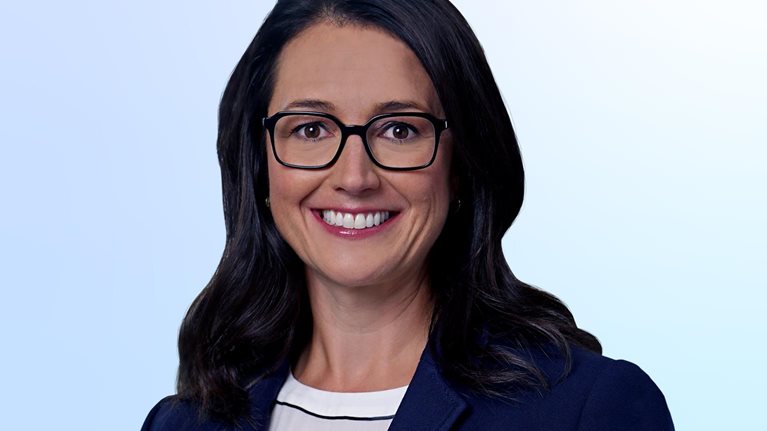Many insurers are strategizing their next moves in light of developing technologies and harnessing their data to better serve customers today. For this episode of McKinsey on Insurance, McKinsey senior partner Tanguy Catlin sat down with Kevin Strain, president and CEO of Sun Life, at InsureTech Connect 2023 in Las Vegas. The two discuss what it means to think like a digital company, how insurers can partner with insurtechs to better serve customers, and the potential of generative AI. An edited transcript of their conversation follows.
Tanguy Catlin: How do you think about the role of data and analytics in your journey at Sun Life moving forward?
Kevin Strain: We see digital leadership, thinking and acting like a digital company, as an important part of our strategy—how we achieve our purpose of helping clients achieve lifetime financial security and live healthier lives. And increasingly, our clients want to engage with us in a digital way.
We see three elements of thinking and acting like a digital company. The first is having a modern tech stack. I actually think that’s the easiest of the three, and we’re going to be pushed there by the way things are progressing, with where software vendors are going and where consultants are going. It’s a good thing.
The second is how we work. Acting like a digital company requires learning from and operating more like these companies: making IT part of the business as opposed to just a support function, allowing IT to receive direct feedback on the client experience, and doing more testing and learning.
And then the third element is using the data to understand our clients better.
Tanguy Catlin: Many people know about Sun Life as an insurance company or as an asset manager. You are now putting a lot of energy behind health. Why is that?
Kevin Strain: We updated our purpose a few years ago to include achieving healthier lives alongside lifetime financial security. If you think about long-term financial security, being healthy is one of the most important things you can do. We also had all this data on people, and we saw ways that we could help them to live healthier. We’ve been building out these capabilities in Asia, Canada, and the United States.
Tanguy Catlin: You are the architect behind many of the partnership and acquisition deals Sun Life has made recently with insurtechs. Why have you pursued these partnerships?
Kevin Strain: When I took over as CEO, I wanted to look at our purpose, our strategy, and how we are delivering on our strategy. I started by stepping back and asking people about our purpose: “What do you think about our purpose? Can you give me examples of when we’ve helped clients achieve lifetime security and live healthier lives?”
Of course, there were examples of that, but there weren’t enough of them, and it wasn’t systemic. So we’re on a journey now of determining how we can systemically create positive financial and health outcomes for our clients. How do we create that integration point? It’s almost impossible for us to do all of that alone. The sophistication and complexity of lifetime financial security intersects with life insurance needs, health needs, and wealth needs. Our increasing focus on health in particular has made us think about what our core strengths and skills are and where we can partner with an insurtech firm to bring in some skills so that we’re meeting our clients’ needs.
Tanguy Catlin: What’s the expanded value proposition you’re able to deliver through these partnerships?
Kevin Strain: If you think about our goal of trying to help clients achieve healthier lives, we pay benefits, we help clients navigate the care system, and we offer some wellness support. But we’ve historically not been care providers. Near the start of the COVID-19 pandemic, we partnered with Dialogue, a virtual care and wellness provider in Canada. This really helped us out during the pandemic because many people were afraid to or couldn’t visit their doctor, but they still needed to have prescriptions filled or had specific issues to talk to a doctor about. We offered Dialogue for free to all of our Canadian clients for six months, and that allowed Dialogue to access our client base and allowed our clients to have a solution that was really important to them. Dialogue was cofounded by an IT person, and they think about care delivery in a technologically savvy manner, which was really important during COVID-19 and will be increasingly important. Finding that niche with Dialogue was beneficial to both companies.
Want to subscribe to the McKinsey on Insurance podcast?
It’s a great example of how insurtech firms and health tech firms can partner with us. A lot of these companies are further along than we are on applying agile principles, so they’re bringing some of that thinking in. But more important, they’ve really helped us understand the client’s journey with us, how we are delivering on our purpose, and how we can expand into doing things in new ways.
Tanguy Catlin: You’ve said before that to continue to deliver on the purpose, the next generation of leaders at Sun Life will be tech savvy. How are you thinking about upskilling the talent?
Kevin Strain: I want our IT people to understand the business and be part of those solutions, and I want our businesspeople to understand technology better. For me, it’s about eliminating the barriers between business and IT. It’s transitioning from thinking about IT as being a support function to being part of the business and moving to smaller deliverables, acting quicker, and having a bias to action. Strengthening the mutual understanding of both IT and the business is also an important piece of our agile way of working.
Tanguy Catlin: I cannot conclude without mentioning generative AI [gen AI]. What is the potential of gen AI for Sun Life, and how you are approaching it and capturing its value?
Kevin Strain: I think the potential comes from multiple facets of gen AI: to help us understand our clients better, make operations more efficient, create coding quicker, and move faster. There’s not a part of the company that I don’t think will be affected by gen AI, and I think it’s going to happen much quicker than people think.
Five or six years ago, when businesses were starting to go to the cloud, there were a lot of questions. Should you go to the cloud? Shouldn’t you go to the cloud? Is it safe? Now, 50 to 60 percent of Sun Life’s computing is in the cloud. Over time, it’s going to grow to 100 percent. That’s just the way it is. And I think we have to think about gen AI the same way. This is going to be additive to our business. It’s going to help us deliver solutions quicker and more efficiently for our clients.


